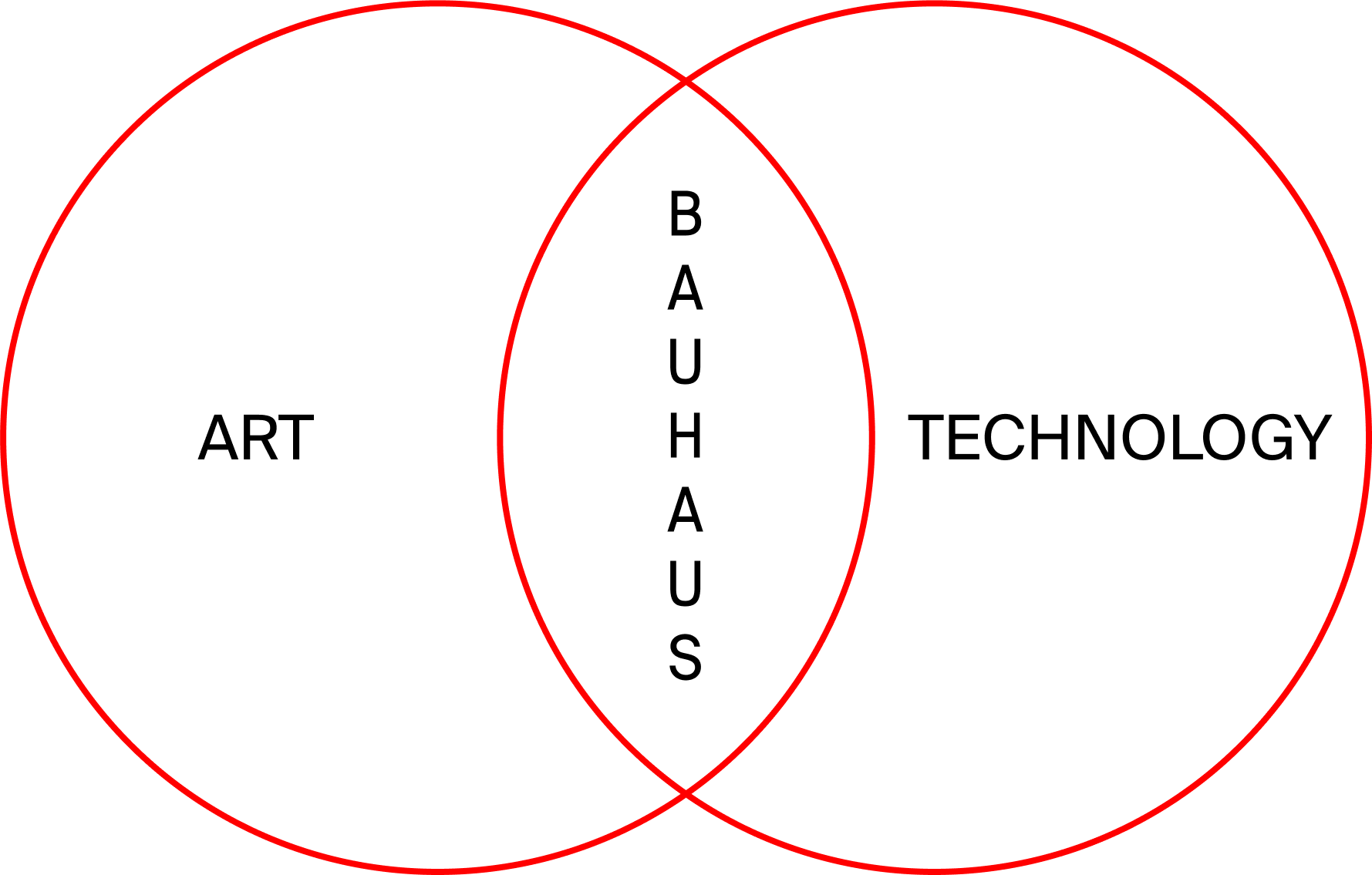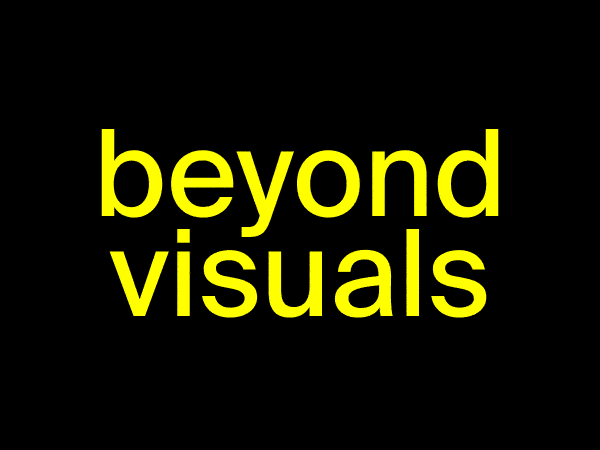Learnings from the Bauhaus about Art and Technology
We live in an unbelievable time: never before have there been so many innovations in such a short period of time. Technological progress is accelerating exponentially and is constantly rolling down old structures.
The fourth industrial revolution in which we are currently living is a tough one: From an ethical-philosophical perspective, we hardly have the opportunity to classify and evaluate the rapid developments for ourselves, since the next all-changing technology is just around the corner. What a philosophical dilemma! It seems that companies dictate to us how we should and want to live and we play the game without reflection. The ideal that the corporations today are trying to make us believe, a world that is networked to the tips of our hair, monetized and flooded with data, is purely driven by economic interests and has little to do with our real needs. We are dealing with black boxes that deny us any insight into their inner workings. This is exactly what makes us as human beings incapable of action and controllable. This fact elevates technology above human beings and that is the problem. What can we do to counter this?
At this point I would like to invite you to take a look at the past:
When the Bauhaus was founded in 1919, it provided many helpful approaches in a historical epoch that rhymes strongly with the present day.

The Bauhaus provided aesthetic, philosophical and ethical answers to the massive and all-changing industrialisation. Through the consistent combination of art and technology, a philosophy was lived out in this visionary school of design that was able to cast the economic and technological developments into an aesthetic form and which, at least in terms of the idea, relegated the machine to the place where it belongs: Below people and their needs. Today we are dealing with completely different technologies than at the time of the Bauhaus:
Software has taken the place of large, heavy machines. And the material the software is made of is the code.
Should all designers learn programming now? No, I wouldn’t go that far. Nevertheless, from a philosophical point of view, mastering a programming language is an effective way to emancipate oneself from the machine of today. I think this is so important that the many other positive side effects of this skill fade into the background: Programming designers are in demand in the marketplace as never before. They are trained in solving abstract problems, can quickly think their way into complex systems, are trained in the English language and are able to develop their own products with a pure investment of time. Programming is an highly effective tool to explore cutting edge technologies. For designers, it opens doors to an enormously exciting intersection from many perspectives.
Of course you don’t learn to code in a few days. It requires stamina, curiosity, a high frustration tolerance and a strong commitment. Especially for creative people the way into this abstract world seems to be blocked.
What if there was a type of programming that was artistic by nature, very easy to learn, without excluding the abstract principles of applied programming. One that is fun and involves creativity from the very beginning? One that is directly aimed at visual learners?
The last 20 years have been a blessed time for this utopia. Since Processing appeared at the turn of the millennium, the world of programming has suddenly become accessible to artists and designers. Since this initial impact, new technologies aimed at artistic programming have appeared at ever shorter intervals. In the meantime, a gigantic community exists around this term and is slowly but surely conquering the world of art and design. You guessed it: I am talking about “Creative Coding”.
This term has now become established and means programming with artistic intention. Creative Coding requires a radical rethinking, because it detaches the design process from the medium. Thus, a programmed system can create media of any kind, which challenges potentially complex, proprietary software such as the all-dominant Adobe Creative Suite.
The programming languages for this are freely available and free of charge. They invite to an exciting journey into a universe of gigantic, unexplored territories.
Computation is made by us, and we are now collectively responsible for its outcomes.
John Maeda / How to speak Machine
I really like this quote by John Maeda. Creative Coding is a powerful tool with which we can playfully explore, question and design our technological world. With it we regain a piece of control that we need for a self-determined life.
I would definitely like to mention here the initiative “sharing bauhaus”, which is concerned with the further development of the Bauhaus ideas and actively supports my examination of this topic.
“sharing bauhaus” on facebook
“sharing bauhaus” on instagram
website
Related
 A Call for Coding Designers
A Call for Coding Designers
This is a call for coding designers. It aims to serve as a proposal and a provocation for creative work […]
 A reflection on Processing Community Day Copenhagen 2023
A reflection on Processing Community Day Copenhagen 2023
I’ve been travelling a lot in the last few months. Still, it was only during a short stay in Copenhagen […]
 What Creative Coding can teach you beyond crafting visuals
What Creative Coding can teach you beyond crafting visuals
Learning to code has had a bad reputation for ages. Many people have the impression that it’s all about acquiring […]
 How I built myself a Digital Garden
How I built myself a Digital Garden
It was a red hot day in July 2023 when I met Alex Muñoz for breakfast in the morning at […]
 Digital Impact @ Disseny Hub
Digital Impact @ Disseny Hub
A few days ago, I visited the Disseny Hub in Barcelona to see the exhibition “Digital Impact”. On the website, […]
 Demystify Technology – A kind of Manifesto
Demystify Technology – A kind of Manifesto
A Fortunate Look into the Spam Folder When I opened my email program on an ordinary workday in the morning […]
 Thoughts on Artificial Intelligence
Thoughts on Artificial Intelligence
Photo: Vyběr Socky What a ride! I’m sitting in the room of a luxury hotel in Prague, once again packing […]
